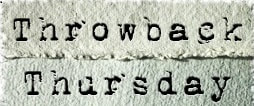|
This week I remember a classic in American poetry. Walt Whitman is a name that is almost always in the list of greatest American poets. In fact, in 2006, The Atlantic listed him as "the most influential American poet, without question."
Leaves of Grass was first published in 1855. It was found by many to be obscene, with its direct references to the body, emotions and explicit sexual imagery. It was greatly influenced by Ralph Waldo Emerson and the Transcendentalist movement and is truly quintessentially American, as the Atlantic says. Whitman spent the entire rest of his life adding to and revising the one book. It grew from only 95 pages and 12 poems to over 400 poems through, nominally 9 editions (there is some dispute over whether three of the printings were sufficiently changed from their predecessors to be counted as a new edition). As such scholars can trace Whitman's phases of development and thought by tracing the changes in the editions. Whitman was a nurse during the Civil War and was strongly affected by what he found in the hospitals and battlefields of that great struggle. He was also a staunch Lincoln man and he wrote a stirring elegy to the fallen President, "When Lilacs Last in the Dooryard Bloom'd". The title itself was a pun, leaves being the pages of a book and grass was a term used by publishers of the time for works of little value. Fortunately for all of us, there are many leaves and they are definitely of great value.
0 Comments
|
AuthorMe as a critic (be careful! the harshness will be well concealed!) Archives
April 2024
Categories
All
|


 RSS Feed
RSS Feed